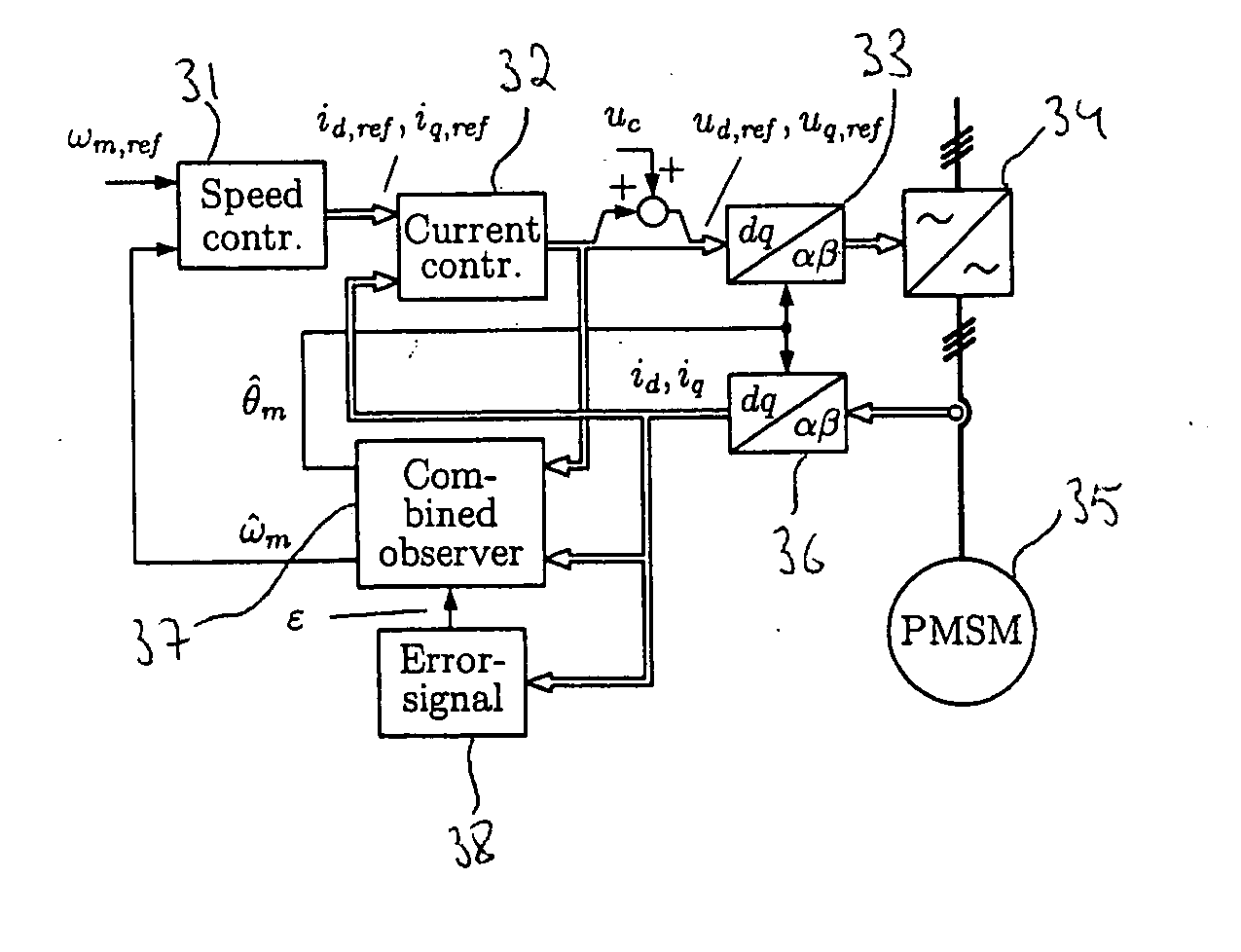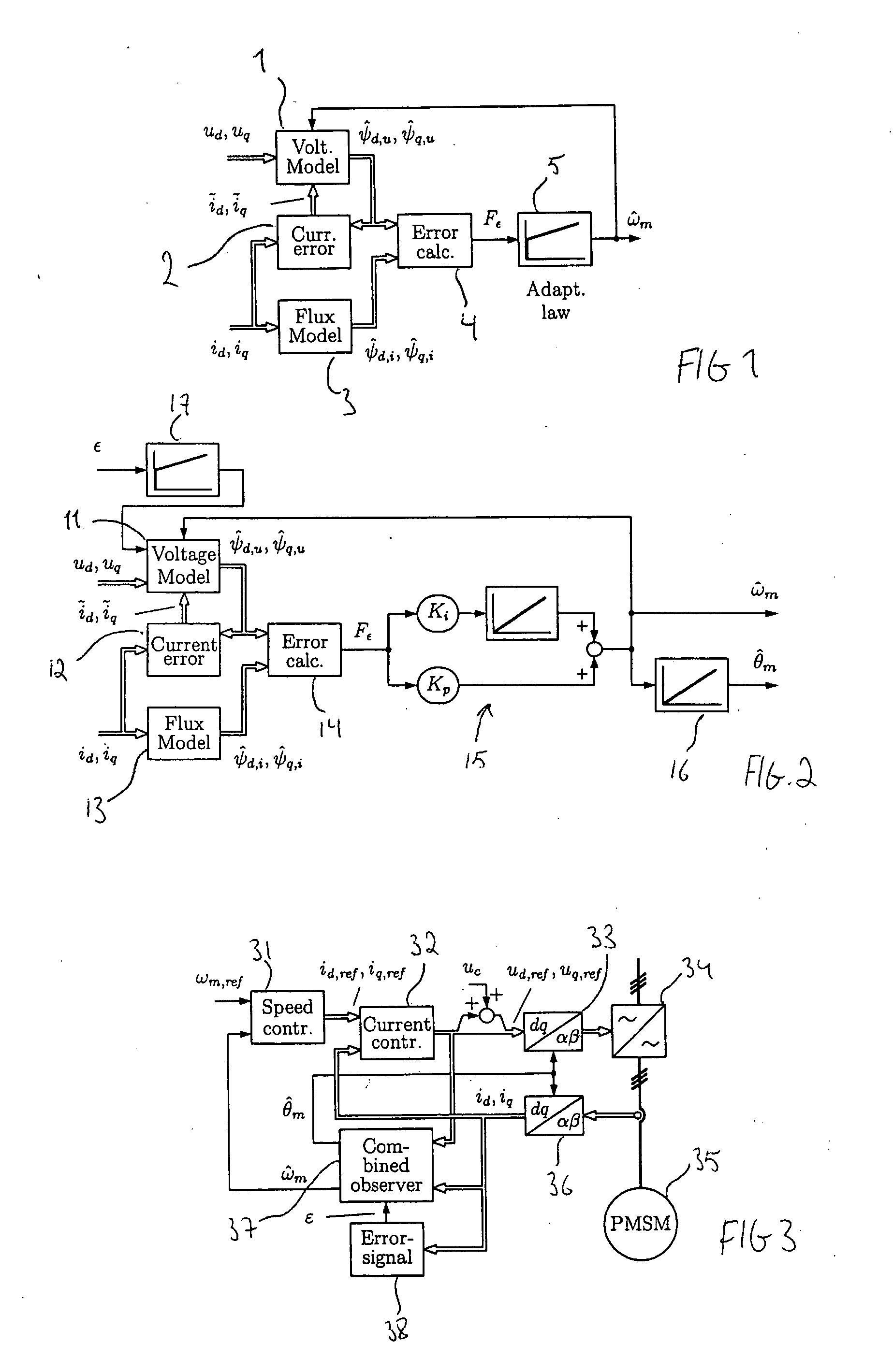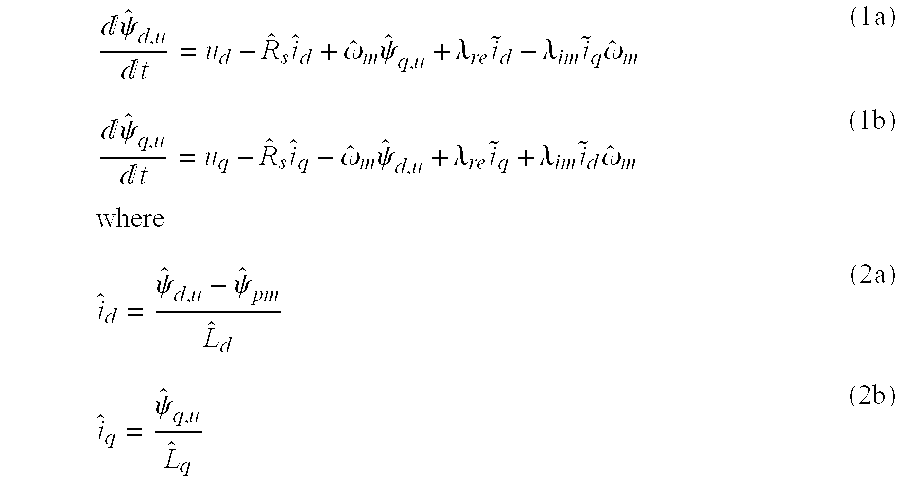Method in connection with permanent magnet synchronous machines
a permanent magnet synchronous machine and rotational speed technology, applied in the direction of electronic commutation motor control, motor/generator/converter stopper, dynamo-electric converter control, etc., can solve the problem of inaccuracy in determining the position angle, and achieve the effect of improving noise rejection, small speed and position estimation error, and excellent dynamic properties
- Summary
- Abstract
- Description
- Claims
- Application Information
AI Technical Summary
Benefits of technology
Problems solved by technology
Method used
Image
Examples
Embodiment Construction
[0016] Adaptive Observer
[0017] In an adaptive observer shown in FIG. 1, the rotor speed and position estimation is based on flux estimation error between two different models. A speed-adaptive flux observer has been developed for induction motors in [5]. For PMSMs, an adaptive observer has been disclosed in stator coordinates in [6], whereas the approach presented in this description is implemented in rotor coordinates. Estimates for the stator flux are calculated using both the voltage model and the flux model. The error of the two flux vectors is used to adapt the speed estimate so that the flux vectors correspond to each other. For the use in the flux and voltage models, the stator currents and voltages are measured and some parameters for these models are measured or identified.
[0018] The stator flux components obtained by the voltage model in the rotor reference frame are ⅆψ^d,uⅆt=ud-R^si^d+ω^mψ^q,u+λrei~d-λimi~qω^m(1a)ⅆψ^q,uⅆt=uq-R^si^q-ω^mψ^d,u+λrei~q+λimi~dω^m...
PUM
 Login to View More
Login to View More Abstract
Description
Claims
Application Information
 Login to View More
Login to View More - R&D
- Intellectual Property
- Life Sciences
- Materials
- Tech Scout
- Unparalleled Data Quality
- Higher Quality Content
- 60% Fewer Hallucinations
Browse by: Latest US Patents, China's latest patents, Technical Efficacy Thesaurus, Application Domain, Technology Topic, Popular Technical Reports.
© 2025 PatSnap. All rights reserved.Legal|Privacy policy|Modern Slavery Act Transparency Statement|Sitemap|About US| Contact US: help@patsnap.com



